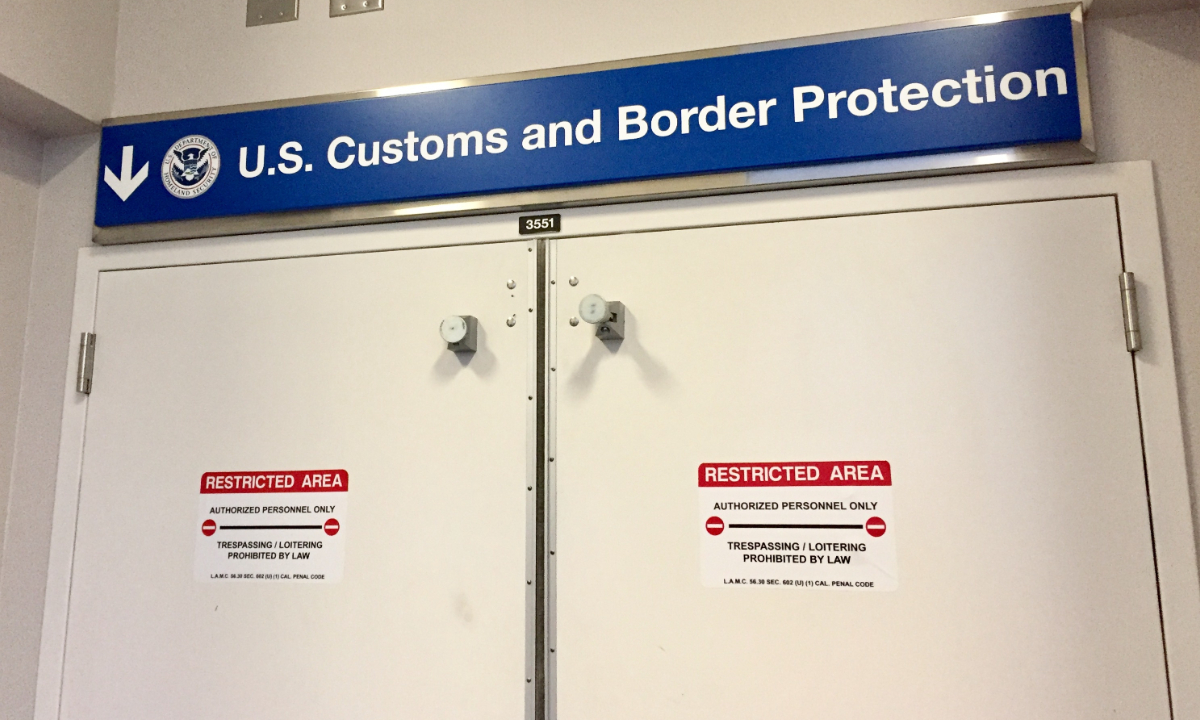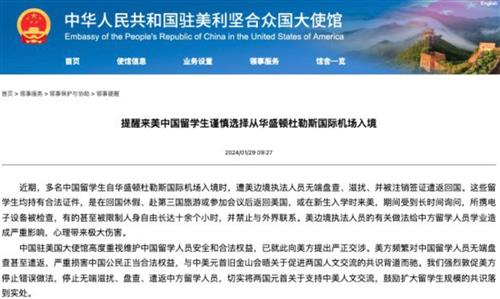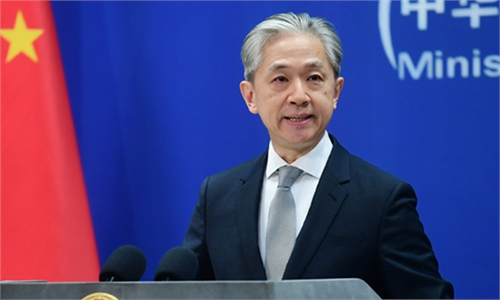Chinese students share terrifying experience of interrogation and harassment at border port when entering the US

Photo: VCG
Some Chinese students who experienced unwarranted interrogations, also known as secondary inspection, shared terrifying experiences at the border port upon their arrival in the US. According to the students, it is highly probable for students studying abroad through China Scholarship Council (CSC) and postgraduates or PhD candidates of science and engineering majors to be subjected to unwarranted interrogations and harassment at the border, news portal Sina News Onsite reported.
Some Chinese students studying in the US but were subjected to unwarranted interrogations and harassment upon their arrival at Washington Dulles International Airport, and were deported back to China with their visas revoked came into media spotlight again over the past few days.
A Chinese PhD candidate named Ou Ou went to the US on a six-month joint-training program but spent two hours on the secondary check upon his arrival at the John F. Kennedy International Airport in New York.
According to Ou Ou, he arrived at the airport at 5:30 am and half of the passengers arrived at the airport along with him went through the secondary check.
Ou speculated that he was interrogated because his engineering major is a sensitive program. The customs interrogations focused on research projects and its funding including the content of the research, the identification of his mentors and whether he or his mentors or parents accepted government funding, Onsite reported.
Science Times also reported that 10 Chinese students who have been repatriated recently are graduates from famous domestic universities and studying at the Ivy League universities in the US. Seven of them have doctoral degrees.
According to Ou, the inspection officials’ primary concern throughout the process was whether the funded project has any government background. Ou said the entire inspection process was trying to induce him to disclose that he was sponsored by the CSC, Onsite reported.
However, what he applied was his school’s specialized joint training fund rather than the CSC, considering the combined risks of engineering major and CSC program.
Whereas Dai Wei, who studied abroad through the CSC, faced even more detailed inquiries, including pressure tests.
According to Dai, she was taken into a separate room and her electronic devices were confiscated, and wasn’t allowed to contact anyone during the entire process.
Dai was so frightened by this “interrogation” that she is still afraid to communicate with foreigners today.
According to Dai, a strong man in uniform constantly questioned her whether her school is involved in military researches and whether she was involved in military researches. The inspection officer also demanded her to describe her research content in Chinese, according to Onsite.
According to Ou, the inspection officer also asked him to unlock his mobile phone so that it could be checked and asked him not to work for the Chinese government.
Despite of the zig-zag inspection experience, both Ou and Dai successfully passed the border check, whereas those unfortunate students had their visas revoked and were deported back to China, with their studies unfinished, Onsite reported.
The Chinese Embassy in the US also reminded Chinese students planning to study in the US to carefully consider their choice of entering the country through Washington Dulles International Airport, and to raise awareness of security when entering the US.
If they are stopped by US border law enforcement officers, they should remain calm, and handle the situation properly. If they are subjected to unfair treatment, the embassy said they should take note of the information of US border law enforcement officers, carefully check the contents of the documents to be signed and request copies, and retain necessary evidence. Afterwards, they can seek to protect their rights through complaints or legal means and contact the Chinese embassy or consulates in the US for assistance.
Global Times


